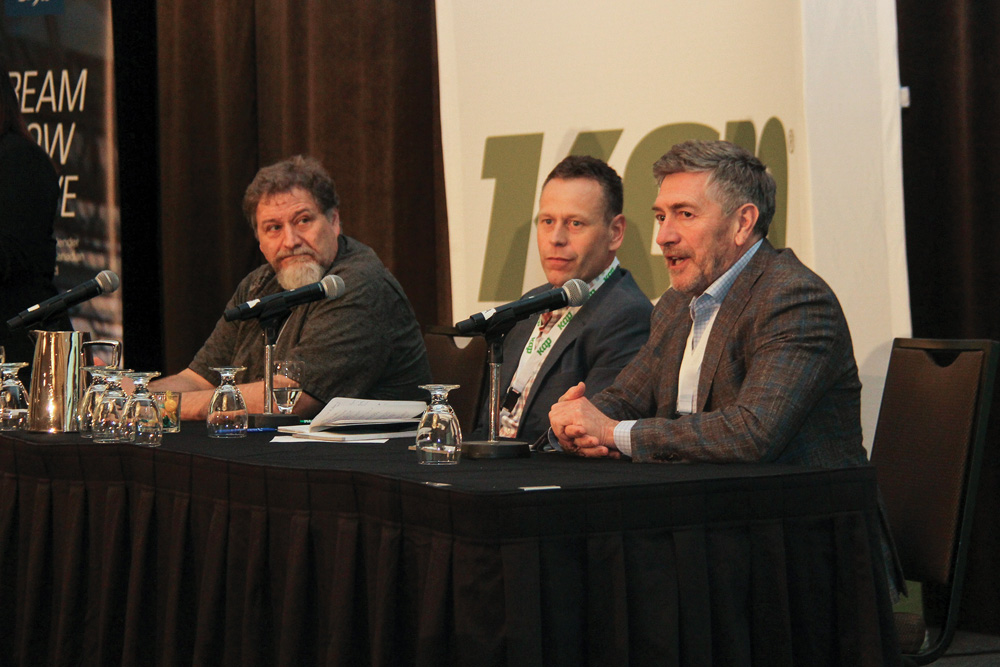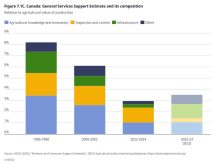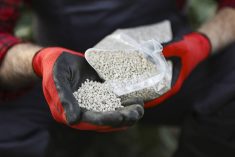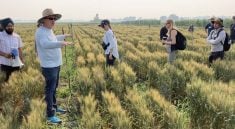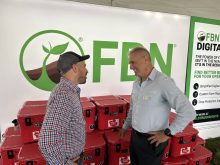KAP members called on their leaders to push governments for more long-term research on nitrogen management.
“We need the research to get it done,” said David Rourke.
He brought the issue forward in a resolution at Keystone Agricultural Producers’ annual general meeting in Winnipeg Jan. 25-26.
Read Also

AAFC organic research program cut
Canada’s organic sector says the loss of a federal organic research program at Swift Current, Sask., will set the industry back.
The federal and provincial governments are pushing and paying farmers to use best management practices like 4R nutrient management and cover-cropping, the resolution said, but those practices won’t achieve the federal government’s 2050 net zero goal.
It asked KAP to lobby both levels of government to “invest more into researching logical, easy-to-use, scalable and cost-effective technologies that would assist farmers [to] be financially sustainable when striving towards the Canadian goal of clean growth and net zero by 2050.”
If the federal government wants lower fertilizer emissions, a significant amount of research is needed.
The promoted best management practices are “all good in their own way,” Rourke said. “4R is fine, except that you can’t get to net zero.”
Cover cropping involves seeding for a second time each year, one of them during harvest, he added.
The motion carried with little debate.
The resolution echoed comments from Mario Tenuta, senior industrial research chair in 4R Nutrient Management at the University of Manitoba.
[RELATED] Plant pulse crops for lower emissions
During a panel discussion, Tenuta told KAP members that BMPs promoted through current programs came from past research. Continued research and investment is needed for future programs and incentives, he said.
Who will pay?
Tenuta told farmers that nitrogen management will become more important and more scrutinized in food production. Technology for that management will improve to the point that it reduces N losses.
To farmers younger than 50 or 55 he said, “by the time you retire from farming, you’ll be farming for nitrogen management. It will be just as important as farming for yield and profitability.”
Farmers expressed concern that increased nitrogen scrutiny will come with costs they can’t recoup.
“If government and society want farmers to contribute towards reducing the impact of climate change by sequestering carbon, we’re providing a service to society so farmers should be paid for that service,” said Chuck Fossay, who farms near Starbuck and is president of the Manitoba Canola Growers Association and a former vice-president of KAP.
The On-Farm Climate Action Framework (OFCAF), which includes financial incentives for adopting BMPs, is “a good start,” Fossay added.
“Sustainability is the three-legged stool, and I am a strong believer in the economic part of that equation. I think it’s the biggest leg on the stool,” said out-going KAP president Bill Campbell.
He asked panelists how farmers can build a business model when applying practices that offer no yield increase or revenue (e.g. nitrification inhibitors) and where details of incentive programs are uncertain.
“Not all environmental practices pay for themselves,” answered John Heard, provincial soil specialist. “Which is too bad because most BMPs … there is a return to the farmer for doing the right thing.”
Heard said he thinks OFCAF is an “introductory offer” from the government that prompts people to try BMPs so they can become familiar with them and see where they fit best on the farm. He called it an interim measure before more pressure is brought to bear.


